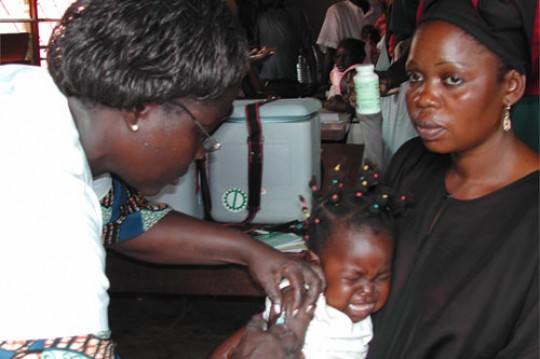Measles cases continue to surge in Europe and Africa, says UN agency
Measles cases continue to surge in Europe and Africa, says UN agency

So far, 40 European countries have recorded 26,025 cases between them since the start of the year. France has been the most affected, with 14,025 cases, and the Government has responded by modifying its vaccination schedule as well as offering vaccines in schools free of charge. Other countries have increased access to and availability of the vaccines.
Of all the European cases, only 11 were fatal, six of them occurring in France and one each in Germany, Kyrgyzstan, Romania, the former Yugoslav Republic of Macedonia and the United Kingdom.
In Africa, more than 103,000 cases have been reported in the Democratic Republic of the Congo (DRC) alone, and although deaths are not routinely notified to the WHO regional office, the agency estimates that there have been 1,100 measles-related deaths in that country this year. In addition, 17,428 cases were reported in Nigeria, 5,397 in Zambia and 2,902 in Ethiopia.
The number of cases is significantly lower in the Americas with Canada being the most affected country with 742. None were fatal. Other countries that presented outbreaks include the United States, Ecuador, Brazil, Colombia, Mexico and Chile, with most linked to importations from Europe and Africa.
Measles is a highly infectious disease that causes complications and deaths, even in previously-healthy individuals. It remains one of the world’s biggest causes of death among young children, but is fully preventable by vaccination.
In April, WHO urged European countries to work closely to avoid the spread of the outbreak. European Immunization Week kicked off that month in 50 countries, the largest number of participants since the initiative began.
![]()
###
> United Nations (UN).
 The United Nations was established on 24 October 1945 by 51 countries committed to preserving peace through international cooperation and collective security. Today, nearly every nation in the world belongs to the UN: membership totals 192 countries.
The United Nations was established on 24 October 1945 by 51 countries committed to preserving peace through international cooperation and collective security. Today, nearly every nation in the world belongs to the UN: membership totals 192 countries.
When States become Members of the United Nations, they agree to accept the obligations of the UN Charter, an international treaty that sets out basic principles of international relations. According to the Charter, the UN has four purposes:
- to maintain international peace and security;
- to develop friendly relations among nations;
- to cooperate in solving international problems and in promoting respect for human rights;
- and to be a centre for harmonizing the actions of nations.
* The above story is adapted from materials provided by United Nations (UN)
** More information at United Nations (UN)




















